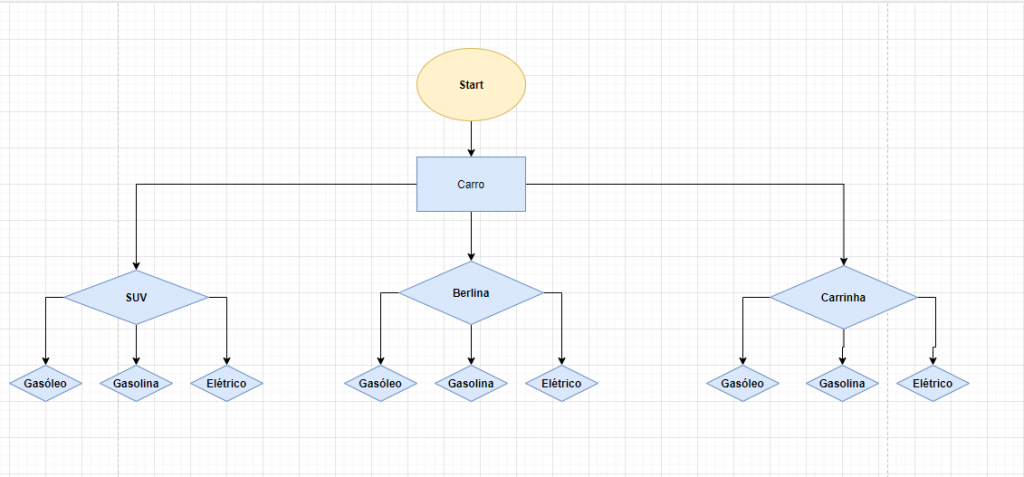In this third week, our team started to talk with our expert (Rui Magalhães). We showed him our initial thoughts and asked him about what a client usually has in mind when he wants to buy a car and what are his motives, emotions, and causes to proceed with the purchase or the transition to a new car. In the meantime, we had already structured our initial tree:

The acknowledgment transmitted by the expert was:
The clients has two types of motivations to change or purchase a new car:
- Emotional motivations
- Price;
- Design;
- Brand;
- Status;
- Specifications;
- Fuel;
- Versatility.
- Conjunctural motivations
- Growth in family size;
- Kids recently licenced with a necessity of a car to go to college;
- The people need to take their children to school, do grocery shopping and other daily tasks;
- With the pandemic situation some people had the need to buy a private car to avoid public transports and be safer.
Another advice that the expert gave us, was to group the cars by segments.
The segments can go from:
- A (Peugeot 107; Citroën C1; Renault Twingo…);
- B (Peugeot 208; Citroën C3; VW Polo; Seat Ibiza…);
- C (VW Golf; Ford Focus; Peugeot 308; Renault Megane…);
- D (Mercedes C; BMW Serie 3; Audi A4…);
- E (Mercedes E; BMW Serie 5; Audi A6…);
Having this in mind, we knew that we had a lot of changes to do to our tree. We needed to start debating what our evidences, hypothesis, and conclusions should be. Besides that, we also resourced to the biggest Portuguese e-commerce car website, Standvirtual.
As for curricular units, on Knowledge Engineering (ENGCIA) we focused our work on the development described above. As for Paradigms of Artificial Intelligence (PPROGIA), we talked about constraint consistency and propagation techniques.